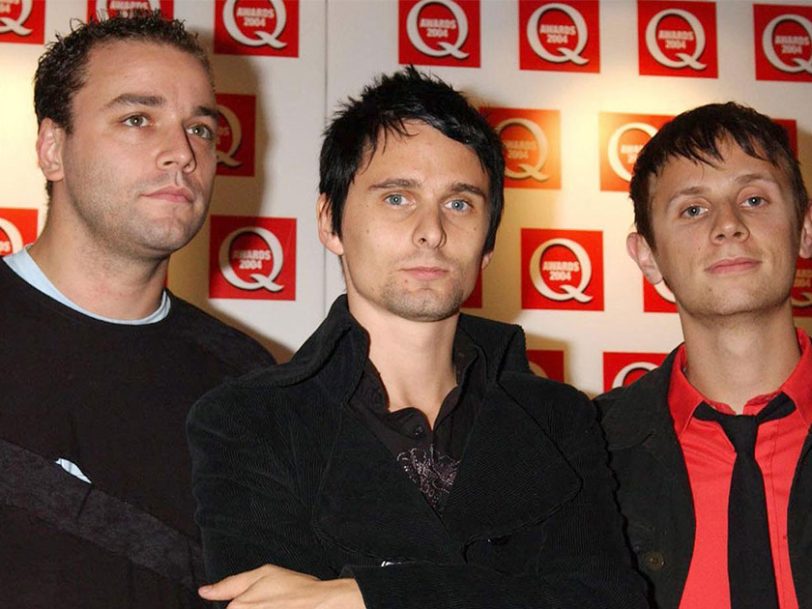Before Muse even released an album they had already played the massive Woodstock ’99 festival and caught the attention of esteemed DJ Steve Lamacq and celebrated music newspaper NME. Though their debut album, Showbiz, received a lukewarm reception from critics and the record-buying public alike, it didn’t stop this ambitious band from taking a hugely experimental approach to its follow-up, Origin Of Symmetry, butting heads with their US label, Maverick, in the process for not being commercial enough. Their parting of ways may have hindered the band’s growth stateside, but on their third album, Absolution, Muse established themselves as a bona fide rock force throughout the rest of the world, headlining the legendary Glastonbury Festival in 2004 and setting the record for smashing the most guitars on a single tour (that’s 140 for anyone who’s counting). The stage was set for their fourth album, Black Holes And Revelations, to go stratospheric.
Listen to ‘Black Holes And Revelations’ here.
The boundless imagination that comes with self-reflection
The West Country trio of singer/guitarist Matt Bellamy, bassist Chris Wolstenholme and drummer Dominic Howard aren’t ones to do things by halves. And on paper, Muse’s approach to Black Holes And Revelations had all the makings for an overblown affair. It is, after all, fuelled by the members’ mutual interest in conspiracy theories, the New World Order and ideas of alien invasions. Musically, too, influences are drawn from as far and wide as noise rock, classical, dance, surf rock, electronic and prog. And yet the themes running through this ambitious and ostentatious release – those being the boundless imagination (black holes) and the awareness that comes with self-reflection (revelations) – give the whole thing an instantly accessible and relatable feel.
Opener Take A Bow begins with a burbling, space-age synth arpeggio that builds along with Bellamy’s wrath over a disingenuous government – “Corrupt/You corrupt/Bring corruption to all that you touch… You’ll burn in hell/Yeah you’ll burn in hell for your sins.” It reaches a climax in a crescendo of guitars and multi-layered vocals. Yet, while sounding resoundingly futuristic, reference points are drawn unashamedly from the old school – think New Order, ELO and even Ennio Morricone. The album’s second single, Starlight, and its predecessor, Supermassive Black Hole, manage to evoke the glam rock spirit of Marc Bolan and prove that, even among the band’s increasingly sprawling ambition, they’d not lost their ear for catchy-as-the-common-cold pop hooks.




